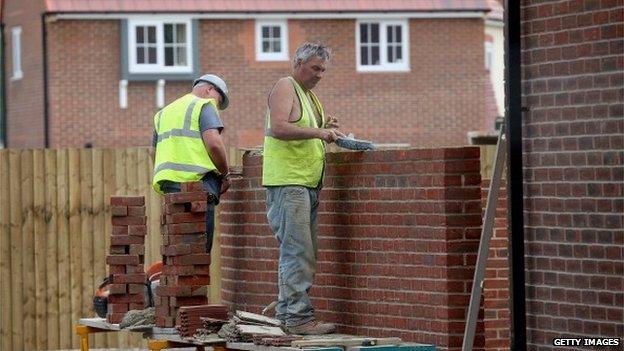Help to Buy creates 'risks' for the taxpayer, MPs warn
- Published

The government's Help To Buy scheme, designed to boost the housing market, creates "medium and long-term risks to the taxpayer", MPs have warned.
The Public Accounts Committee said the portfolio of mortgage loans would create a "heavy administrative burden".
It also questioned whether it represented value for money for the taxpayer.
Housing minister Kris Hopkins rejected the report, arguing that the plan had supported the economy.
The Committee only looked at the first part of Help-to-Buy - the equity loan scheme.
It is aimed at people who can afford a mortgage but are struggling to get on the housing ladder because they are unable to raise a suitable deposit.
Under the scheme, the government offers buyers of a newly-built home a loan worth 20% of the purchase price, provided they have a deposit of 5% and the property costs less than £600,000.
The government loan is interest free for the first five years.
Margaret Hodge, the Labour chair of the committee, said that overseeing a portfolio of loans was new territory for the government and required "careful management".
'Wider benefits'
"There are also more immediate risks, particularly the fact that some buyers have accessed the scheme with deposits of less than 5%, which increases taxpayers' exposure to risk," she said.
She added that the government did not "carry out any assessment of alternative, potentially more effective options before going ahead with the scheme - a violation of Treasury guidelines".
Mr Hopkins accused her of grandstanding and political point-scoring.
"The Help to Buy Equity Loan scheme is building more homes and supporting the economy - in fact we estimate the wider economic benefits could be as much as £1.8bn," he said.
The report also said 13,000 home-buyers took advantage of the deal in the first nine months - mainly in northern England and the Midlands rather than the South East, where new home-building needs to be encouraged.
Scotland and Wales operate similar schemes but covering properties worth up to £400,000 and £300,000 respectively. Northern Ireland runs a slightly different "co-ownership scheme".